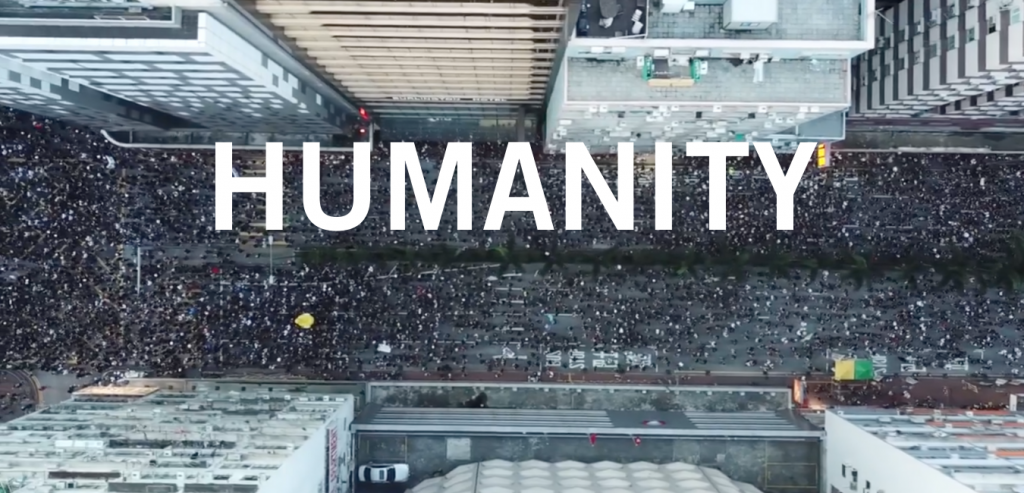The almost two years of the Covid-19 pandemic has had a devastating effect on human rights, especially social, economic and cultural rights, Amnesty International South Africa said on Human Rights Day.
We have witnessed the world panic, change, and adapt to an unprecedented health crisis that has left many without access to their basic human rights. Hospitals, schools, communities and businesses have taken strain as just over 90,000 have lost their lives in South Africa, and almost 5.3 million deaths are observed worldwide.
In South Africa, we are seeing a rapid increase of cases in what looks to be a ‘fourth wave’ of the virus, with less than 30% of the population fully vaccinated.
Unfortunately a pandemic did not halt the global community’s rights abuses with vaccines being siphoned off by richer countries while developing countries scrambled, begged and pleaded for vaccines at affordable prices.
“No one is safe until we are all safe and until pharmaceutical companies stop putting profit before life, developing countries, which include those on the African continent, will continue to bear the brunt of the Covid-19 pandemic and its consequences,” Amnesty International South Africa Executive Director Shenilla Mohamed said.
“Covid-19 has exposed the human rights fissures present globally and in South Africa and worsened them, creating even greater disparities and placing human rights on the back pedal.”
In South Africa, we have seen the increased use of excessive and lethal force by security forces, a failure by the state to protect its citizens during the July unrest, the soaring cases of gender-based violence (GBV), and xenophobic social media campaigns.
“South Africa continues to display some of the most pervasive and extreme levels of GBV. It pervades political, economic and social structures of society, cuts across all divides and impacts all aspects of life,” said Mohamed.
The recent quarterly crime statistics painted a dismissal picture of what is happening in South Africa, with the majority of crimes increasing. The total number of sexual offences had increased by 4.7% between July and September. There were over 13,000 domestic violence cases in the same three-month period.
“It is clear that South Africa is not a safe place for everyone who lives here. The police have an obligation to protect the rights to life and security. These stats show that they are failing to fulfil this obligation.”
Children have also faced significant inequalities and hardship in the public education system. In February, Amnesty International released its report, Failing to learn the lessons? The impact of COVID-19 on a broken and unequal education system, which showed how the pandemic had plunged South Africa’s schools further into crisis, exposing how the country’s education system continues to be shaped by the legacy of apartheid.
Health workers also faced high risk during the pandemic because of a lack of PPE, this while there were alleged cases of corruption around PPE. During this time there was also restricted access to sexual and reproductive health services for women, due, in part, to a lack of clarity on what constituted “essential” services. Additionally, almost 20 million people still do not have access to safe, sufficient, reliable water, and 14 million people do not have basic sanitation.
The global health crisis has brought to the fore the continuing poor state of service delivery in the country and the resultant inequalities.
Covid-19 has also laid bare, once again, the unacceptably slow pace of economic transformation and growth, which is impacting on people’s livelihoods. In the past year, unemployment numbers have continued to rise. Statistics South Africa’s Quarterly Labour Force Survey revealed that the country’s unemployment rate had hit a new record high of 34.9% for the third quarter of 2021.
“It can no longer be acceptable to use Covid-19 as an excuse for these human rights failures, and to crack down on people’s fundamental rights,” Mohamed said.
“It is now, more than ever, that we need the government to put the people first and ensure that everyone is afforded their basic human rights.”
Background
Human Rights Day is observed globally on 10 December. It is the day the United Nations General Assembly adopted the Universal Declaration of Human Rights (UDHR) in 1948.
The UDHR proclaims the inalienable rights that everyone is entitled to as a human being - regardless of race, colour, religion, sex, language, political or other opinion, national or social origin, property, birth or other status.
For more information or to request an interview, please contact:
Genevieve Quintal, Media and Communications Officer, Amnesty International South Africa: +27 (0)64 890 9224; genevieve.quintal@amnesty.org.za
Interviewees are available in isiZulu and Sesotho.
Public Document
****************************************
Amnesty International South Africa office, 97 Oxford Road, Saxonwold, Johannesburg, 2196
press@amnesty.org


